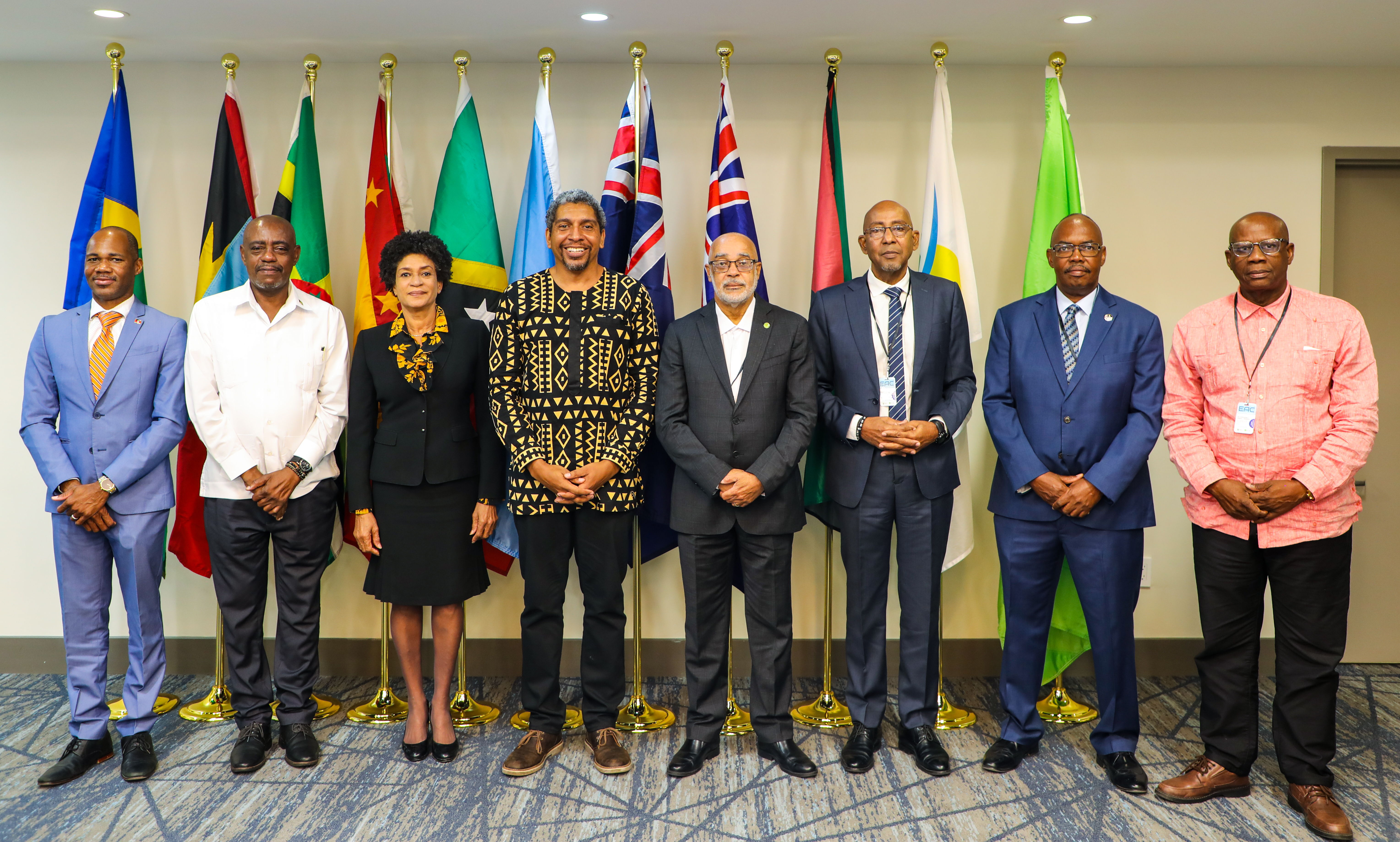The Economic Affairs Council (EAC) plans for resilience against global challenges for OECS Member States.
OECS Press Release
March 27, 2025 – The Government of St. Vincent and the Grenadines welcomed distinguished regional leaders and delegates to the Fourth Meeting of the Organisation of Eastern Caribbean States (OECS) Economic Affairs Council on March 25, 2025. The meeting, held at the newly built Holiday Inn Express and Suites in Diamond, highlighted key discussions on regional integration, sustainable development, and economic growth amidst global challenges.
In his opening remarks, Honourable Camillo Gonsalves, Minister for Finance, Economic Planning, and Information Technology of St. Vincent and the Grenadines, who assumed the role of Chair of the Economic Affairs Council, stressed that integration is the OECS' strongest response in a volatile global environment. He outlined current major threats facing the small island developing states of the OECS:
“The Eastern Caribbean Central Bank has identified three major threats to our collective economic prospects. One, climate related risks like further hurricanes, sea level rise, drought, erosion and the like.
Two is the uncertainty in the US economy related to the policy shifts under the administration of President Trump and the Honorable Minister of Foreign Affairs and Dr. Jules have spoken to those. Third, they identified the volatility in revenue from citizenship by investment programs upon which a few countries in our region place very heavy reliance.”

Economic volatility and crises, as well as climate concerns, necessitate building resilience to safeguard our future was the theme of Dr. Didacus Jules, Director General of the OECS remarks. Importantly he emphasised that even in our smallness, we are not powerless:
“Our dependence on a narrow range of economic activities, particularly tourism, has rendered us vulnerable as the COVID-19 pandemic starkly revealed. The OECS Development Strategy Action Framework responds with a blueprint for diversification across ten high-potential sectors, including renewable energy, digital transformation, blue economy and technology.
Food security is a cornerstone of economic independence. The OECS Food and Agriculture Systems Transformation Fast Strategy is a bold step towards regional food sovereignty, reducing our dependence on imported staples and building resilient agriculture value chains. In the energy sector, the OECS Sustainable Energy Greenprint 2035 charts a clear path towards clean, reliable and affordable power. By targeting a minimum of 20 percent renewable energy in small capacity in each member and associate state, by 2030, we not only reduce import dependence, but fortify our economic security.”

Minister for Foreign Affairs and Foreign Trade of St. Vincent and the Grenadines, the Honourable Frederick Stephenson, underscored the importance of unity and the long-term goal of creating a resilient, sustainable, and competitive regional economy. He also took the opportunity to reflect on the need to continue deepening regional integration efforts, particularly in light of the ongoing global challenges such as geopolitical tensions and economic protectionism:
“We must continue to build on the momentum created, ensuring that our economies remain competitive, inclusive and sustainable. Collaboration among our Member States is not just a necessity, but a strategic advantage. By working together, we can position the OECS as a competitive, resilient and forward-thinking economic block. Furthermore, the OECS integration movement remains a beacon of what small states can achieve when we work together. Our commitment to harmonize policies, free movement and economic transformation will drive our region forward.”
The meeting will feature discussions on key topics including the proposed OECS customs union and free circulation of goods regime, freedom of movement of OECS nationals, a regime for the free movement of services, competition policy and food security. It represents a pivotal moment for the OECS to align on strategies that will not only enhance its economic standing but also ensure sustainable growth in the face of external and internal challenges.
The Fourth Meeting of the OECS Economic Affairs Council will commence ahead of the 8th Council of Ministers: Tourism in St. Vincent and the Grenadines on March 28, 2025.
Marvin St. Louis
OECS Communications Unit















